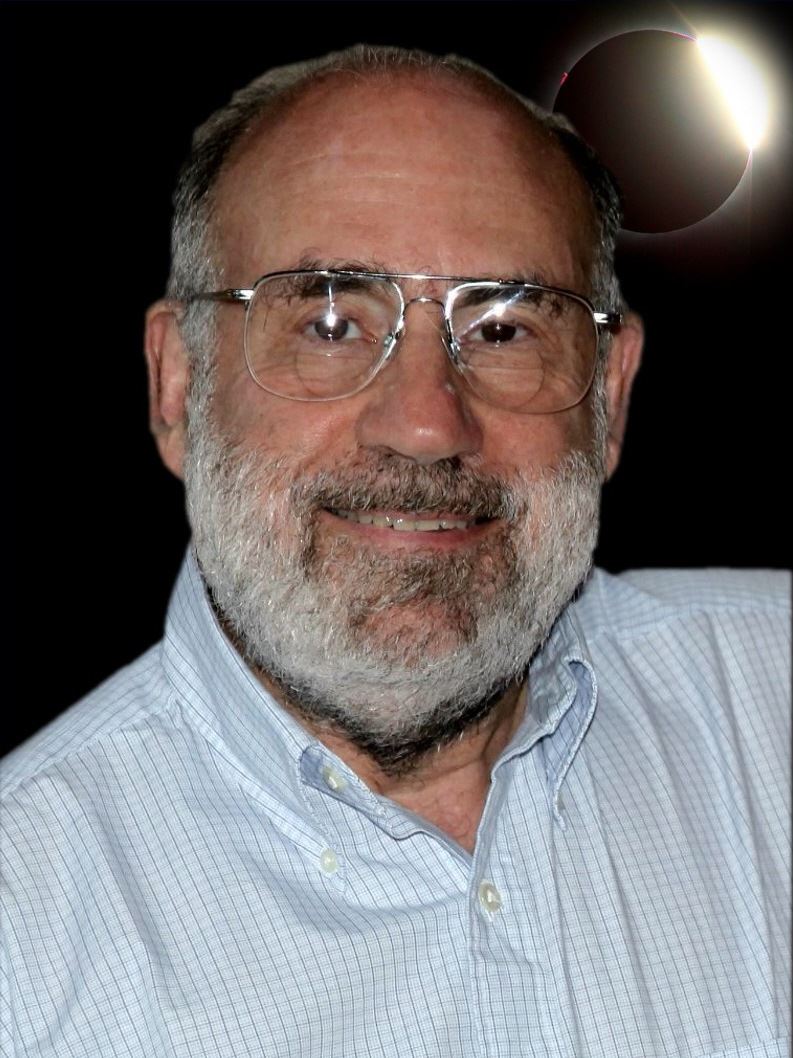Agenda:
7:00 - 7:15 General Meeting & Announcements
7:15 - 7:30 Short topic presentation by a club member
7:30 - Public Presentation
Speaker: Dr. Howard L. Cohen
Emeritus Assoc. Professor of Astronomy, University of Florida

Topic: Celestial Perversions: Distorted Visions of Our Heavens*
Abstract:
Ever since our ancestors first gazed upwards, people have used the sky to express emotions in words and images. Today we continue to exalt the heavens. Sometimes we get it right; often we get it wrong! This unusual, entertaining, informative and sometimes humorous presentation illustrates how we have often mangled stars, planets and moons in an attempt to capture the heavens in our literary and artistic works.
Don't miss this fun-filled multimedia program filled with many examples of celestial perversions! This program is suitable for both beginning and advanced star gazers. You may even learn some astronomy along the way.
*An adaptation of a presentation given 2002 August at the Nebraska Star Party. Later further adapted for an AAC talk, 2007 October. Most current AAC members have probably not seen or remember this presentation. It remains among my wife's favorites, which prompts me to do it again.
About the Speaker:
Professor Howard L. Cohen is a retired faculty member in the Department of Astronomy at the University of Florida, Gainesville, where he taught physical sciences and astronomy for more than thirty-five years (1968-2003). During this time he taught graduate courses and basic astronomy and science classes to more than 15,000 students. In addition, he also helped pioneer the use of multimedia for teaching astronomy.
During the 1980s, while directing the undergraduate laboratory courses, he completed a major renovation of the Teaching Observatory and initiated its Friday night public programs. Later he served as the department's graduate coordinator. For many years he tried interesting the University of Florida in building a planetarium. Although unsuccessful, his efforts finally helped Santa Fe College build its own planetarium.
Professor Cohen is also a founding member of the old Florida (Amateur) Astronomical Society (1971) and the Alachua Astronomy Club (1987) where he has been a frequent presenter.
Dr. Cohen was instrumental helping the Alachua Astronomy Club and artist Elizabeth Indianos design both the Gainesville (now Regal) Royal Park Stadium 16 astronomical murals (1999) and the Gainesville Solar Walk Planetary Monuments (installed 2002).
He has been interested in astronomy since the seventh grade and attended the University of Michigan where he received a B.S. in astronomy (1962). His graduate work was done at Indiana University. Here he was among the first astronomy graduates students in the USA to earn his A.M. degree (1964) and Ph.D. degree (1968) under the guidance of an African American astronomer, Dr. Benjamin F. Perry.
For a time in 1964 and 1966 Dr. Cohen was a staff astronomer at Lowell Observatory where he worked both on research projects and acted as tour guide. Later he served as a consultant and Southeast Regional Sales Manager for Meade Telescopes in the 1980s.
Research interests have spanned a variety of projects including lunar and asteroid occultations, eclipses, calendars, eclipsing binaries and star clusters. At Indiana University he helped pioneer the use of high-speed mainframe computers in photoelectric, spectroscopic and binary star data reduction and analyses. His work helped determine reliable temperatures for very hot stars. During the 1980s he was also the first to test a prototype of a new Air Force ground-based electro-optical deep-space surveillance system (GEODSS) for the detection of asteroids and comets.
Since 1968 he has worked with his wife, Marian, an independent travel consultant with Continental Capers Travel in Gainesville, to plan, organize and escort worldwide eclipse and other astronomical tours for small groups. He has traveled globally to more than a dozen total or annular solar eclipses and successfully observed both the 2004 and 2012 transits of Venus. He continues to be an active member of the Alachua Astronomy Club.